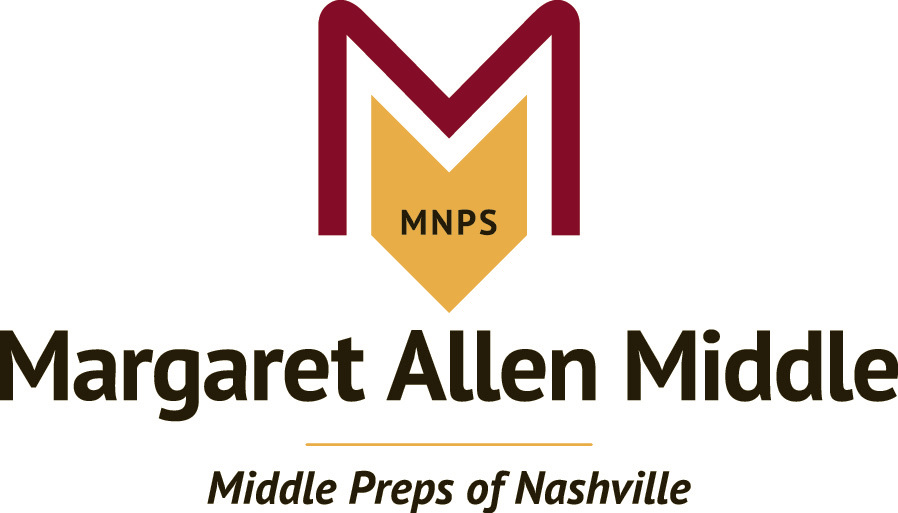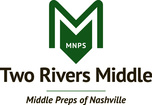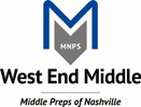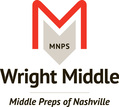|
Sorry that I have not blogged lately, I'm excited to share that I've been working with several central office teams and schools fostering a culture of collaboration for supporting student success. Below is a summary of the collaborative work being done throughout MNPS.
If you would like assistance or more information about collaborative inquiry or have a story to share, please reach out to Margie Johnson at [email protected].
0 Comments
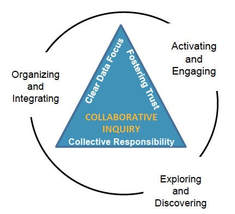 This week, I received a link to an article by Learning Forward with the title, "Collaboration is the answer" (Hirsch & Crow, 2018). Since my work is around fostering a culture of collaboration, I had to stop and read it (https://learningforward.org/publications/blog/learning-forward-blog/2018/01/30/collaboration-is-the-answer). The thing I like best about this article is it recognizes the complex issues being faced by today's educators; hence, the reason for collaboration. If one person knew the answer to the problem, then it would already be solved. “No generation of educators in the history of the United States has ever been asked to do so much for so many” (DuFour & Marzano, 2011, p. 5). The answer to beginning to support all student success is through collaboration. The MNPS collaborative inquiry process provides a meeting structure and equips facilitators with group dynamic strategies for ensuring that meetings are productive, efficient, and honors the professional expertise in the room. As Albert Einstein said, "We cannot solve our problems with the same thinking we used when we created them." Collaborative inquiry allows the best thinking to rise to the top for addressing issues that are hindering our success. To see MNPS schools and organizations using collaborative inquiry, please check out the Workshop Warehouse. If you would like to share a story about collaborative inquiry or interested in assistance, please contact Margie Johnson at [email protected]. References: DuFour, R. & Marzano, B. (2011). Leaders of learning: how district, school, and classroom leaders improve student achievement. Bloomington, IN: Solution Tree. Hirsch, S. & Crow, T. (2018). Collaboration is the answer. Learning Forward website. Retrieved from https://learningforward.org/publications/blog/learning-forward-blog/2018/01/30/collaboration-is-the-answer Collaboration Spotlight: Margaret Allen Middle Using Collaborative Inquiry with Panorama Data1/30/2018 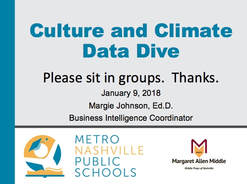 Research indicates the impact that culture has upon organizations. Of course, defining and measuring culture can be difficult. This year, MNPS is using Panorama Education's Feedback survey to collect data from teachers and students about our culture. Kisha Cox, Executive Principal of Margaret Allen Middle, used the student and teacher survey results to have her staff provide recommendations for improving culture during Spring 2018. Using the collaborative inquiry process, teachers made observations of the data. The recommendations were generated in groups using the traffic light protocol (Lipton & Wellman, 2012). If you would like to read more about their work, please go to: www.mnpscollaboration.org/margaret-allen-middle-jan-2018-culture-and-climate.html If you and/or your staff would like more information about the collaborative inquiry process and how it supports student success, please contact Margie Johnson at [email protected]. 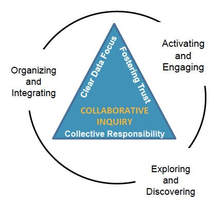 I hope you enjoyed the snow days. I know that I did. Now, it is time to get back to the important work of supporting student success. Prior to the snow break, I had the privilege of working with to MNPS teams--Learning Technology and the SE Quadrant Leadership. During the two meetings, the collaborative inquiry process was used to facilitate discussion to dialogue to decision making. To learn more about the work being done by both of these outstanding teams, click on the below links.
If you have a collaborative story to share or would like to request assistance, please contact Margie Johnson at [email protected]. "Culture eats strategy for breakfast." ~Peter Drucker 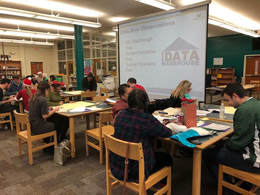 This quote summarizes the importance of culture in an organization. On December 12, 2017, Dr. Shelly Dunaway, Executive Principal at Two Rivers Middle, and her staff used the collaborative inquiry process to analyze culture and climate data for informing culture and climate change at Two Rivers Middle. The meeting began with a strategy called visual synectic. In this strategy, two seemingly unalike ideas are compared. It is an excellent brainstorming activity and helps develop psychological safety at the beginning of the meeting. For this meeting, staff members engaged in a conversation about "culture is like Walt Disney World because...." After activating and engaging staff members in the conversation about culture, the staff participated in the culture and climate data dive. During the data dive, staff members were asked to make observations of the following culture and climate data sets:
The observations were organized and integrated using the Traffic Light protocol (Lipton & Wellman, 2012) to discuss what might be some next steps to stop, continue, and start for Spring 2018. If you'd like to learn more about their work, go here: www.mnpscollaboration.org/two-rivers-dec-2017-culture-and-climate.html GOOD NEWS!! A BIG SHOUT OUT and THANK YOU to everyone who has been part of the MNPS Collaborative Inquiry work as you are part of work that's being recognized nationally by others.
References: Lipton, L., & Wellman, B. (2011). Groups at work: Strategies and structures for professional learning. Sherman, VT: MiraVia, LLC. Collaboration Spotlight: Cole Elementary and Research, Assessment, and Evaluation Department12/12/2017 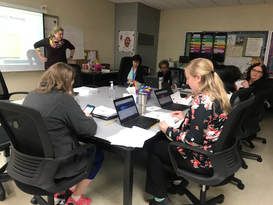 On November 16th, Katherine Thrash, Cole Elementary's numeracy coach, and Denise Brown, Cole's data coach, co-facilitated a collaborative inquiry session. Taking the teacher recommendations for the math BHAG from the Oct. 26th grade level meetings, the leadership team established a math BHAG for Cole Elementary. The outcome for this meeting was to share the math BHAG and have grade level teams develop action plans for achieving the math BHAG. To learn more about their work and action plans, check out www.mnpscollaboration.org/cole-elem-bhag-fall-2017.html OTHER GOOD NEWS On December 4, 2017, Dr. Shelly Dunaway and Dr. Margie Johnson shared about MNPS' Collaborative Inquiry practices in a 3 hour workshop at the 2017 Learning Forward conference. The session was entitled, Fostering a Culture of Collaborative Professionalism. Approximately 20 educators from across the US attended the session where the collaborative inquiry process was modeled and best practices in facilitating collaborative teams were shared. To access the workshop materials, go here: http://www.mnpscollaboration.org/2017-learning-forward-workshop.html If you have a collaborative story to share or would like to request assistance, please contact Margie Johnson at [email protected]. Collaboration Spotlight: Metro Data Coordinator's Meeting Featuring MNPS Collaborative Inquiry12/1/2017
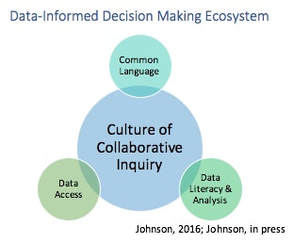 On November 16, 2017, Margie Johnson and Brad Redmond shared MNPS' Data-Informed Decision Making Ecosystem and how it was used to improve how MNPS uses attendance data for making informed decisions. To teach participants about the heart of the ecosystem, which is a culture of collaborative inquiry, participants engaged in the collaborative inquiry process by looking at attendance data and making recommendations for improving it. Using this process, data conversations were fostered and several departments approached us about having continued conversations for supporting student success. If you'd like to learn more about the collaborative inquiry process used during this meeting, check out the video recording at: https://youtu.be/j-MtCuusP3Q. You are also welcome to access the resources, such as the PowerPoint, used during the meeting at: www.mnpscollaboration.org/metro-data-coord-meeting-nov-16-2017.html If you have a collaborative story to share or would like to request assistance, please contact Margie Johnson at [email protected]. References: Johnson, M. (in press). Empowering educators to make data-informed decisions: A district’s journey of effective data use. In E. Mense and M. Crain-Dorough (Eds.), Data leadership for K-12 schools in a time of accountability. Hershey, PA: IGI Global. Johnson, M. (2016). Experience from the field. In J. Rankin, How to make data work: A guide for educational leaders (pp. 171). New York City, NY: Routledge. I have been fortunate to be on a learning journey with the MNPS Exceptional Education Department. This fall, we have been using the collaborative inquiry process to use multiple sources of data to inform their work for supporting student success throughout MNPS. This learning journey is an example of leveraging professional expertise to support student success.
During the first session on September 20th, coaches worked in an assigned expert group and used a fishbone analysis to identify root issues. After a gallery walk for feedback from the entire group, each group identified one root issue to focus on this semester. In the second meeting on October 18th, expert groups participated in a data dive to inform their work. Multiple sources of data was used to inform the creation of action plans for their respective root issue. On November 15th, the groups convened to share their action plans. A critical friends protocol was used for feedback. Teams then had time to finish the creation of their plans, which will be presented to the MNPS Exceptional Education leadership team, and implemented next year. To read about their learning journey, go to: www.mnpscollaboration.org/exceptional-education-coaches.html If you have a collaborative story to share or would like to request assistance, please contact Margie Johnson at [email protected].
Thanks to the following middle schools and organizations that participated in the collaborative inquiry data dive.
The session began with an Activating and Engaging activity called Looking Back...Looking Ahead (Lipton & Wellman, 2011) where participants shared how family involvement in schools has changed from the past to now and then their vision for future family involvement.
We Organized and Integrated the observations using the Traffic Light protocol (Lipton & Wellman, 2011) to discuss actions to stop, continue, and start.
References:
Learning Hero. (2017, August). Parents 2017: Unleashing their power & potential. New York, NY: Learning Heroes. Lipton, L. & Wellman, B. (2011). Groups at work: Strategies and structures for professional learning. Charlotte, VT: MiraVia, LLC. |
Email Subscription
Click HERE to subscribe to receive emails for the blog posts. Archives
February 2018
Categories
All
|
|||||||||||||||||||||||||||||||||||||||||||
- Home
-
Workshop Warehouse
- Collaborative Inquiry for Data Use Workshop (Got Data? Now What?)
- Fishbone and Logic Model Workshop Materials
- Innovation Configurations Materials
- Creating an Evaluation Plan
- Facilitating Collaborative Inquiry Workshop (Dr. Laura Lipton)
- Group Data Exploration (PLI 2016)
- Collaborative Inquiry Community of Practice
- JE Moss Elementary Leadership Team Meeting
- 2016 NCES STATS DC Presentations
- Una Elementary Leadership Team
- Haynes Middle Prep-August 1, 2016
- August 2, 2016--Jere Baxter Middle
- 2016 NTC Nashville Analytics Conference
- Glencliff ES Leadership Team--Sept. 15, 2016
- Haynes MS Leadership Team Culture and Climate Meeting--Sept 19, 2016
- Sept 27, 2016 Two Rivers Leadership Team Meeting
- Rose Park Culture and Climate--2016
- Two Rivers SIP Goal Setting--Sept 20, 2016
- Curriculum and Instruction Meeting--Sept. 30, 2016
- Two Rivers--October 10, 2016
- John Early Culture and Climate--2016
- CTE Cohort--October 11, 2016
- Apollo Middle Milestone Meeting
- Murrell--Culture and Climate 2016-2017
- Margaret Allen--Jan 4, 2017 Culture and Climate
- Head Magnet Middle--Jan 4, 2017
- Apollo Middle--Jan 10 & 25, 2017
- IT Creswell Vision and Mission
- Dr. Springer Literacy CoP
- Two Rivers SIP Process Feb & Mar 2017
- East Nashville SIP March 2017
- East Nashville Behavior Plan May2017
- Family Engagement Data Dive
- Leading Collaborative Inquiry
- DuPont Tyler Middle Vision and Mission
- Facilitating Collaborative Teams
- 2017 SEL Conference Culture and Climate Change
- JE Moss Elementary Leadership Team Meeting--2017
- Goodlettsville Middle Vision and Mission
- CTE Cohort--July 26, 2017
- Joelton Middle Vision and Mission
- Whites Creek High Freshman Academy Vision and Mission
- Goodlettsville Middle Poverty Simulation Follow-Up Meeting
- Exceptional Education Coaches
- Hull Jackson Montessori Poverty Simulation Follow-Up Meeting
- Central Office Poverty Simulation Follow-Up Meeting
- Jones Paideia Poverty Simulation Follow-Up Meeting
- Cole Elem BHAG Fall 2017
- Cole Elem Culture and Climate--2016
- NAZA Data Dive Nov 3, 2017
- Metro Data Coord Meeting Nov 16, 2017
- 2017 Learning Forward Workshop
- Two Rivers Dec 2017 Culture and Climate
- MNPS Learning Tech Jan 2018
- MNPS SE Quadrant Leadership Meeting Jan 2018
- Margaret Allen Middle Jan 2018 Culture and Climate
- MNPS Early Learning Jan 2018
- Lakeview Elementary Jan 2018
- Wright MS SIP Process Jan 2018
- Cane Ridge HS Student Data Chats Jan 2018
- Antioch Middle Spring 2018
- Whites Creek HS Feb 2018
- 2019 Wright MS Leadership PLC
- July 2019--JE Moss Elementary Leadership Team Meeting
- Collaboration Corner Blog
- MNPS Data Guides
- Meeting Structures and Strategies
- Feedback
- Collaborative Inquiry Working Group
- Reading List
- Home
-
Workshop Warehouse
- Collaborative Inquiry for Data Use Workshop (Got Data? Now What?)
- Fishbone and Logic Model Workshop Materials
- Innovation Configurations Materials
- Creating an Evaluation Plan
- Facilitating Collaborative Inquiry Workshop (Dr. Laura Lipton)
- Group Data Exploration (PLI 2016)
- Collaborative Inquiry Community of Practice
- JE Moss Elementary Leadership Team Meeting
- 2016 NCES STATS DC Presentations
- Una Elementary Leadership Team
- Haynes Middle Prep-August 1, 2016
- August 2, 2016--Jere Baxter Middle
- 2016 NTC Nashville Analytics Conference
- Glencliff ES Leadership Team--Sept. 15, 2016
- Haynes MS Leadership Team Culture and Climate Meeting--Sept 19, 2016
- Sept 27, 2016 Two Rivers Leadership Team Meeting
- Rose Park Culture and Climate--2016
- Two Rivers SIP Goal Setting--Sept 20, 2016
- Curriculum and Instruction Meeting--Sept. 30, 2016
- Two Rivers--October 10, 2016
- John Early Culture and Climate--2016
- CTE Cohort--October 11, 2016
- Apollo Middle Milestone Meeting
- Murrell--Culture and Climate 2016-2017
- Margaret Allen--Jan 4, 2017 Culture and Climate
- Head Magnet Middle--Jan 4, 2017
- Apollo Middle--Jan 10 & 25, 2017
- IT Creswell Vision and Mission
- Dr. Springer Literacy CoP
- Two Rivers SIP Process Feb & Mar 2017
- East Nashville SIP March 2017
- East Nashville Behavior Plan May2017
- Family Engagement Data Dive
- Leading Collaborative Inquiry
- DuPont Tyler Middle Vision and Mission
- Facilitating Collaborative Teams
- 2017 SEL Conference Culture and Climate Change
- JE Moss Elementary Leadership Team Meeting--2017
- Goodlettsville Middle Vision and Mission
- CTE Cohort--July 26, 2017
- Joelton Middle Vision and Mission
- Whites Creek High Freshman Academy Vision and Mission
- Goodlettsville Middle Poverty Simulation Follow-Up Meeting
- Exceptional Education Coaches
- Hull Jackson Montessori Poverty Simulation Follow-Up Meeting
- Central Office Poverty Simulation Follow-Up Meeting
- Jones Paideia Poverty Simulation Follow-Up Meeting
- Cole Elem BHAG Fall 2017
- Cole Elem Culture and Climate--2016
- NAZA Data Dive Nov 3, 2017
- Metro Data Coord Meeting Nov 16, 2017
- 2017 Learning Forward Workshop
- Two Rivers Dec 2017 Culture and Climate
- MNPS Learning Tech Jan 2018
- MNPS SE Quadrant Leadership Meeting Jan 2018
- Margaret Allen Middle Jan 2018 Culture and Climate
- MNPS Early Learning Jan 2018
- Lakeview Elementary Jan 2018
- Wright MS SIP Process Jan 2018
- Cane Ridge HS Student Data Chats Jan 2018
- Antioch Middle Spring 2018
- Whites Creek HS Feb 2018
- 2019 Wright MS Leadership PLC
- July 2019--JE Moss Elementary Leadership Team Meeting
- Collaboration Corner Blog
- MNPS Data Guides
- Meeting Structures and Strategies
- Feedback
- Collaborative Inquiry Working Group
- Reading List
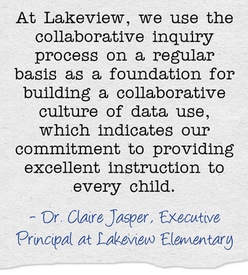
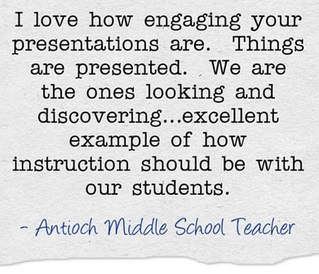

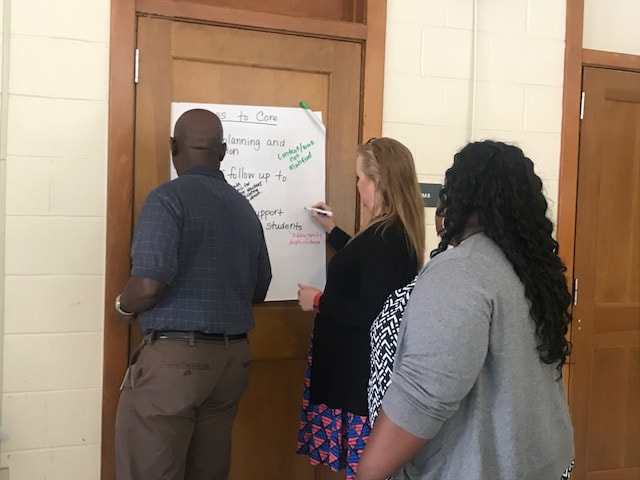
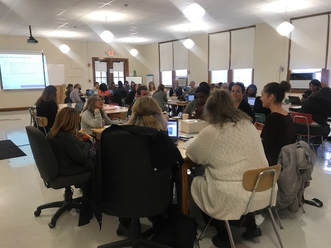

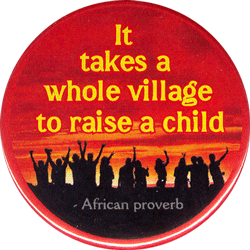
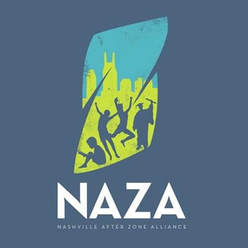
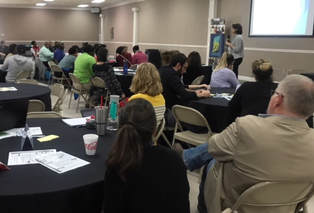
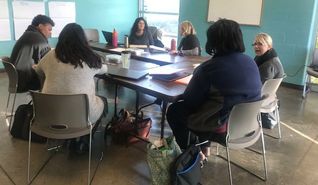
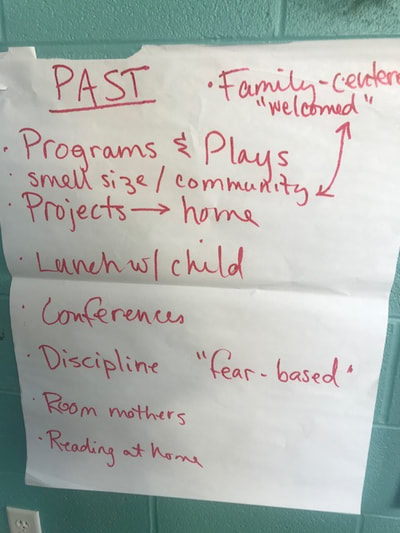
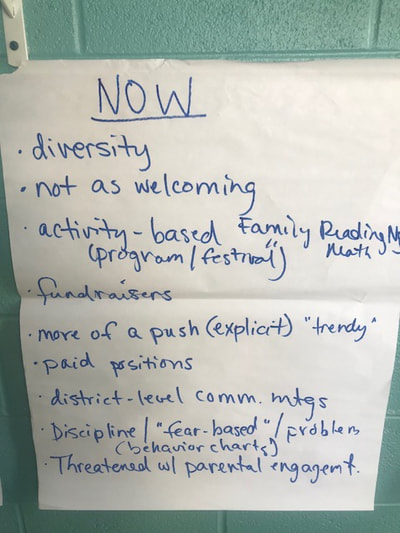
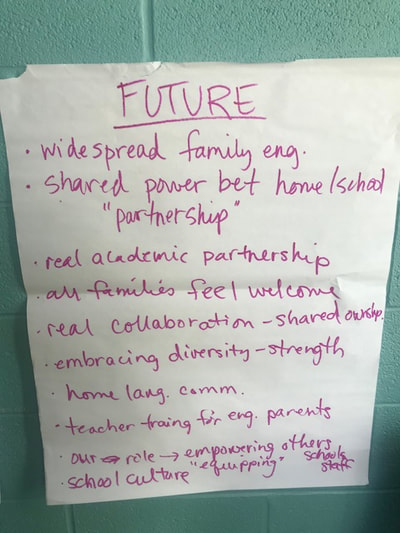
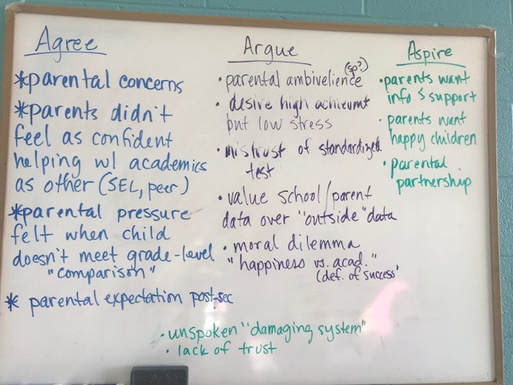
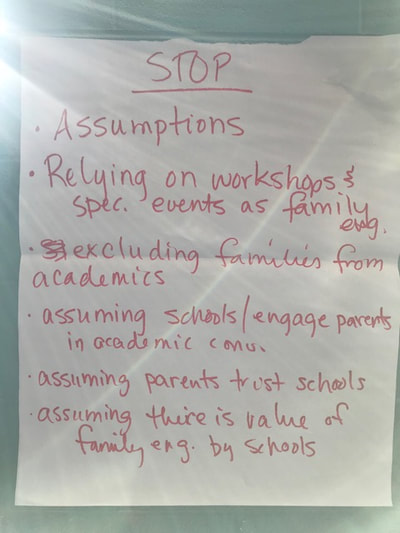
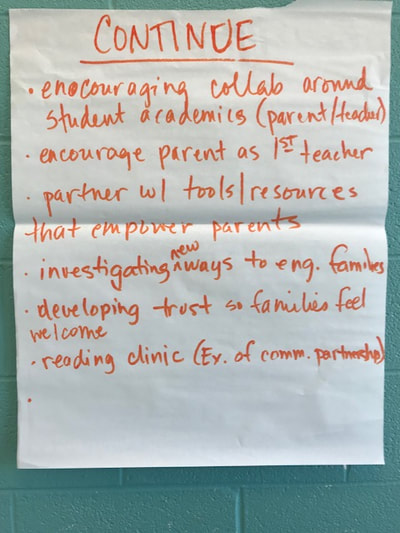
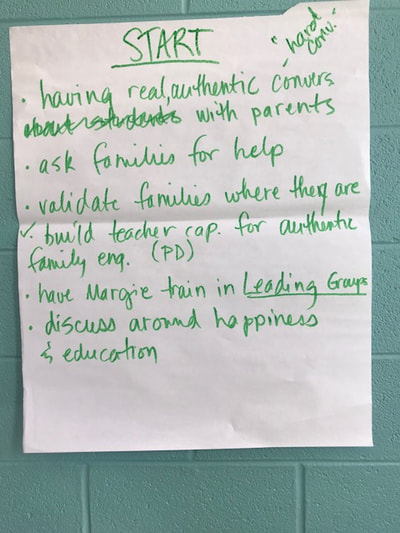
 RSS Feed
RSS Feed

